“He watched Matilda buy a rosary and begin counting her Hail Marys every evening for no apparent reason; he knew she wasn’t religious and he was suspiciously certain that she wasn’t even doing it right.”
Though his father was nothing scary and nothing awe-inspiring or admirable, Junior was nothing but dutiful and obliging. Junior did not drink, smoke, womanize, or fail in school. And his father never complained, never praised, never chided. His aloofness was the greatest incentive for his son’s uncharacteristic maturity. “Good” was not an approbatory word when his father said it; it was like a full stop—conversation over.
Now Junior leaned down to lift his frail father and help him to the toilet. He looked away as the older man fumbled with his genitals, straining to relieve himself. Returning him to the bedroom, Junior began to clean up the toilet when an impatient knock on the door rattled his nerves. Hurriedly, he wiped his wet hands with a towel and went to the front door.
Two women stared openly at him with subtle aggressiveness and irritated curiosity. Promptly deciding against giving them a cordial greeting, he quirked an eyebrow and silently stared them down. A long moment passed before the second woman, plump and active, dramatically clapped her hands in shock.
“Hmmm,” she shook her head from side to side and laughed drily.
Junior felt anger stir in his breast. He was making to shut the door in their faces when the other woman surprised him with the melody of her warm contralto voice, like the low humming of tiny drums, clear and assertive.
“Where is Salisu?” she asked.
Junior quickly examined his visitors a second time. Yes, they were women and their heads were completely covered with a piece of the material from which their dresses were made, thin veils draped around their necks for no practical reason he could divine. Behind them, a heavy bag sat.
“Welcome, Aunty,” he addressed the one with the fascinating voice, opening the door wider and went to hoist the bag on his shoulder.
They sat in the sitting room for a while, mumbling to each other. Junior had served two glasses of chilled mineral water after which he quietly paced the kitchen thinking of what he ought to do next. After he realized that they had come a long distance from Jigawa, he decided that a bath would be the most appropriate thing. Without further thought, he saddled the gas stove with a big pot full of water, then made another appearance in the sitting room to announce that the hot water was ready.
“Come,” the plump and energetic Aunty Bilkisu motioned with a fluttering of her right hand.
Junior shifted a few steps and stopped directly in front of her.
“Have you had your kaciya done?” she made a movement with her hands which suggested a rapid, impatient peeling of yams to him.
“Kaciya?” he asked uncertainly.
Aunty Bilkisu rummaged through her brain for the English word, tapping her left knee irately.
“Circumcision,” the quieter Aunty Farida supplied.
“Yes!” Aunty Bilkisu nodded, turning the word over in her mind, trying the different shades and shapes of it. Circumcision. Circumcisioned. Circumcisioning. She sighed and looked at the boy as he stood waiting before her. “Have you done your circumcision?”
Junior assessed her for a while, mentally weighing the question. “Yes,” he curtly answered.
She laughed her short, dry laugh.
“Then why are you acting like a goat nobody has bothered to circumcision?”
She examined him with a rapid up-and-down movement of her eyes, enjoying his discomfiture with bitter relish. She sighed a drawn out, dramatic sigh.
“We have not come to bathe and spray perfume and be beautiful for you,” she hissed and resumed looking him over sardonically.
He stared incredulously at this remarkable specimen that was his father’s sister and smiled a little visibly in spite of himself.
Junior’s aunties, Bilkisu and Farida, had come to see for themselves whether, truly, their brother was dying and it could not be helped.
“So why didn’t anyone think of a hospital?” Aunty Bilkisu asked in a patronizing tone.
“We have been to many already. They keep saying there is nothing wrong with him,” Junior said, addressing Aunty Farida.
When his sisters supernaturally appeared before him after the memory-lulling passage of nineteen years, Salisu had nothing to say to them. He did not respond to their greeting or their enquiries after his health, and when Aunty Bilkisu began to chatter about the people at home, he indicated with a lifted hand that he did not desire to know. It was like they had always been there; he treated them no differently from his son, speaking to them only when necessary and only about things he absolutely needed, like going to the toilet, opening or closing the window, and getting his son for him. He never told anyone to leave his presence; whatever they did was all the same to him.
Junior longed for those days when the man would say or ask something unnecessary, demand a monosyllabic response and close with his customary “good.” It seemed nothing interested him in life anymore; his eyes were vast pools of fathomless indifference and no one knew what he wanted. Junior was grateful to have his aunts around to tend to the cooking and the cleaning, but he was still in charge of his father’s ablutions and visits to the toilet. The two women accepted their brother’s state without questioning Junior further. But he saw in Aunty Bilkisu’s eyes the hungry question, “Where is your mother?”
To be fair to Matilda, when she decided to leave Salisu, she offered to take Junior with her, to save him from that robotic, unfeeling man, but Junior had refused, arguing that he was in school and the man needed someone who “understood” him to look after him. So she left them both, with the understanding that they were not to harbor any unrealistic expectations of seeing her return.
Warned, cautioned, threatened, and lastly, disowned, Matilda had clung to Salisu, had loved him when it was quite unreasonable and plain unnecessary. He was handsome, robust with health, overflowing with dreams and high hopes, and absolutely deified her, paying obeisance by pre-empting and meeting her every need, complimenting her, defending her before anyone who dared disparage her name, showing her off everywhere and leaving her gasping for breath after every night of passionate, sensuous lovemaking.
They were married against the wishes of their families. Matilda’s Catholic parents mourned as though she had died a tragic death and Salisu’s Muslim siblings shunned him, though his parents presided over the wedding and gave him a befitting ceremony. They each loved their families and hoped that they would be missed and sought out and made welcome again, exulting in their rivalry to out-love each other in the period they needed to wait. Neither wanted to own that their love was waning, that they had lost the convincing rationale to excuse turning their backs on their blood relations and electing, rather, to stay with their riotously sensual ideals.
Matilda was careful never to complain and so was Salisu. Unconsciously, they made a roster for their lovemaking and went on to construct a rigid routine of their married life. They knew they couldn’t risk losing the lustre of attraction in their marriage like other couples, or getting on each other’s nerves, or bickering, because they lived only on each other. He watched Matilda buy a rosary and begin counting her Hail Marys every evening for no apparent reason; he knew she wasn’t religious and he was suspiciously certain that she wasn’t even doing it right. They made a game of counting their prayer beads together, Matilda’s in English and his in Arabic, competing at who was fastest and who went round the most number of times.
Finally, pregnancy saved their marriage and the baby boy, whom Matilda promptly named after the man she so loved, gave them both an extra outside of themselves and a focus. They took to calling him Junior. The boy had grown up in the best possible environment of love, warmth and care, his parent’s obsession with each other overflowing and swallowing him up in rapturous waves. For sixteen years, Junior was delighted with his life, knowing little scruples except for homework. He celebrated all the Eids and Christmases too. For a long time Junior’s most vivid memory was of himself atop a decorated horse at a durbar. He enjoyed it so much that his father promised to take him to Kano soon when some traditional titles would be given so he could see the pomp and pageantry of the emirate.
But that was before the day Salisu would quarrel with his wife—an unthinkable thing in all their years together. Everyone in his family had gathered to bury his parents — the mother and the father that loved him and loved Matilda because of him — but no one thought to let him know. The mourning period had been duly observed and concluded and Salisu still didn’t know. He heard about it that day in a motor park, from a bus conductor as the untidy lad recalled the mallam’s family. Salisu had had occasion to converse with the boy when he stopped to pray at the little mosque in the park. It was something he often did to keep the spine of his social life strong, praying with other Muslims anywhere he happened to be passing by. He also found it very entertaining, hearing stories from across the country from boys and men he met. And just by such random selections, he was at the motor park where he met a bus conductor who knew more about his own family than he was allowed to.
After that quarrel, Matilda had cried — something Junior had never seen before — and the reign of silence began. Salisu did not attempt to re-establish the connection with his family, neither to beg nor to blame. He alone spoke in the house; he stopped indulging aimless banter and limited his relations to them to brief questions requiring concise answers and finalized with an uncompromising “good.” This continued for two years in the space of which Salisu grew more withdrawn every day, resigned from his job, lost all desire for his wife until he was practically impotent, and became a mystery to all who used to know him.
Matilda counted her prayer beads with superstitious fervency; Salisu never bothered to pray anymore. All kinds of symptoms plagued his body, yet from hospital to hospital no one could diagnose him; there was nothing wrong with him. She had resolved to keep him at home then and care for him, waiting for the time he would return to normal, allow himself to live again. But he was determined to be lost, it seemed, and indifference was like the taut, brown skin he wore, an inalienable part of him. One day, his eyes had looked at her with a distinct, undeniable glow of warmth, something like what she used to see when he loved her unapologetically. Matilda’s heart had thumped wildly and for many days she broke the new silence rules and regaled the impassive Salisu with memories of how they loved and fought and stayed and dared the whole world to stop them.
So it was more than a shock to Junior when she told him that she was leaving and he was welcome to come. He had quietly refused, taking care not to let any errant teardrop fall. When Junior announced Matilda’s abominable departure, Salisu had deftly kept silent for more than two minutes, then muttered under his breath something that could only be “good”—the last he ever said that day.
A pressure on his shoulder reawakened Junior to the present. He looked curiously at the tatooed wrist and fingers, expertly done in intricate designs with henna and dye.
“What are you thinking about?” Aunty Farida chided with tentative fondness.
“Why did nobody tell him that his parents died?” he calmly asked, trance-like, looking from one uneasy face to another.
“You live in Jos,” Aunty Bilkisu pointed out in a tone that belied an accusation of stupidity.
“But you’re here now,” Junior challenged.
“Because he is dying,” Aunty Farida said thickly and left. Junior shook his head, incredulous.
“You,” Aunty Bilkisu jarred him back to the moment. “Do you go to church?” she asked, her eyes steadily trained on him.
He shook his head. No.
“You go to mosque?” Hope quivered slightly in her voice as she raised her brows, curiously staring at him.
He shook his head. No.
“Where do you go, then?” her characteristic harshness was further amplified by her exasperation.
He shrugged. “School?”
Aunty Bilkisu hissed. “If you die in this thing, then you die for nothing, on no one’s side,” she accused.
“But I’m not in this thing,” said Junior, “I’m not fighting anybody.”
The days rolled away like that. Junior cared for his father, defended himself when Aunty Bilkisu shot her spiteful arrows at him and called him an uncircumcised kafir, then submitted resignedly to their care-giving.
Then, like the exact answer to an un-thought, unsaid prayer, he saw a familiar figure approach the house. Junior flew open the door and ran into his mother’s waiting arms, this time caring very little whether his tears were coursing down his cheeks or burning unshed in his eye sockets.
**************
Post image by Annie Spratt via Upsplash
About the Author:
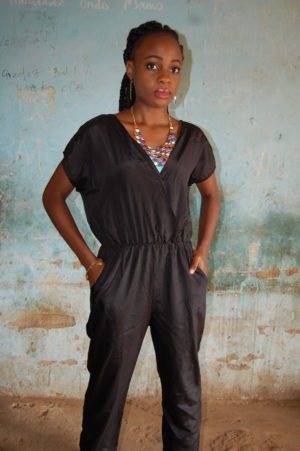 Felicia Taave loves to read and write. Some of her work can be seen on africanwriter.com, naijastories.com and butterfliesbecoming.com. When she’s not reading or writing, she enjoys listening to music, watching movies and disturbing other people.
Felicia Taave loves to read and write. Some of her work can be seen on africanwriter.com, naijastories.com and butterfliesbecoming.com. When she’s not reading or writing, she enjoys listening to music, watching movies and disturbing other people.


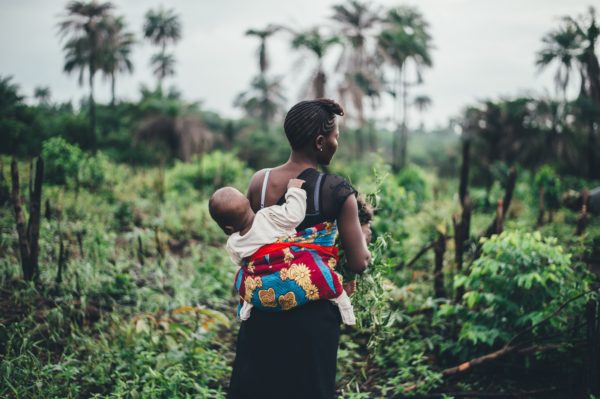

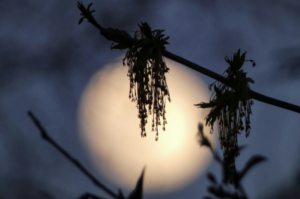

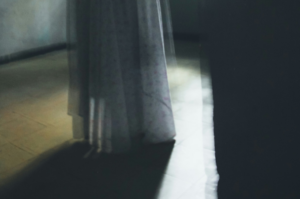

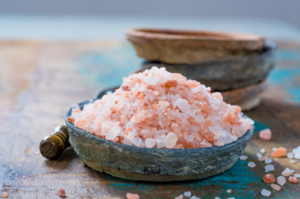

John Edoka April 03, 2017 16:36
I love it.